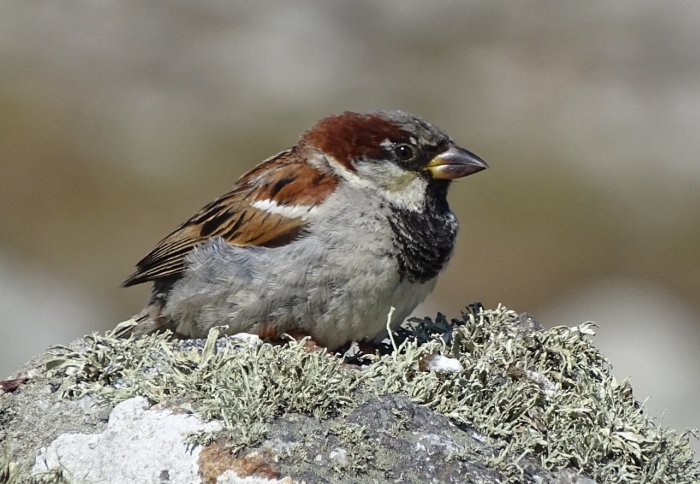Upstart sparrows and chasing waterfalls: News from the College

From textbook-defying sparrows to powerful waterfalls, here is some quick-read news from across the College.
Textbook-defying sparrows
A seemingly well-established hypothesis in biology may need a rethink. The ‘status signalling hypothesis’ says that certain physical attributes of animals reflect their dominance in the group, regardless of age, body size and body condition.
 The classic textbook example of this is the ‘bib’ or ‘badge’ of the common house sparrow being larger to signal dominance.
The classic textbook example of this is the ‘bib’ or ‘badge’ of the common house sparrow being larger to signal dominance.
However, a new study that combines years of published, and, crucially, unpublished data, shows that there is no convincing evidence to support this well-heeled example of the status signalling hypothesis.
The researchers also say their study reveals the existence of “alarming publication bias in the scientific literature”, where the studies that provided zero support for the hypothesis were not published.
Read the article: Meta-analysis challenges a textbook example of status signalling and demonstrates publication bias
How fast is a waterfall created?
A study of the powerful Dettifoss waterfall in Iceland has provided new insights into how the island got its present-day landscape.
 Dettifoss formed after the last Ice Age, when the glaciers that weighed down the island began to melt. After the ice was removed the waterfall and its river valley formed. Now, researchers have been able to work out how quickly this happened, using a combination of drone mapping of the valley and dating of the rock terraces surrounding the river.
Dettifoss formed after the last Ice Age, when the glaciers that weighed down the island began to melt. After the ice was removed the waterfall and its river valley formed. Now, researchers have been able to work out how quickly this happened, using a combination of drone mapping of the valley and dating of the rock terraces surrounding the river.
They estimate that the waterfall eroded the rock behind it and retreated up the river valley at around 70 cm per year for the last 10,000 years, and that most of the island has lifted more than 50 m during that time.
Read the article: Holocene uplift and rapid fluvial erosion of Iceland: A record of post-glacial landscape evolution
–
Want to be kept up to date on news at Imperial?
Sign up for our free quick-read daily e-newsletter, Imperial Today.

Article text (excluding photos or graphics) © Imperial College London.
Photos and graphics subject to third party copyright used with permission or © Imperial College London.
Reporter
Andrew Youngson
Communications Division
Hayley Dunning
Communications Division